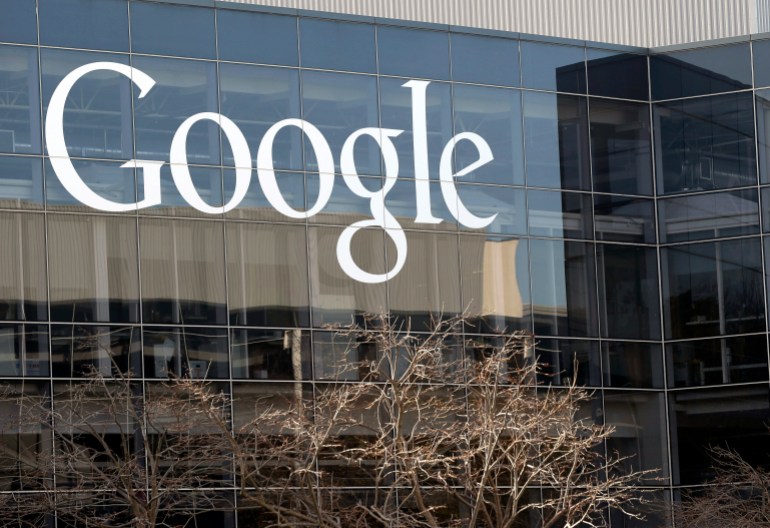Brazil’s Congress is weighing a regulatory bill that would change the load onto world wide web businesses to report illegal information on their sites, a controversial initiative that has pitted the administration of President Luiz Inacio Lula da Silva against key tech firms this kind of as Google.
On Tuesday, Google was pressured to take out a website link on its dwelling page in Brazil that advocated versus Bill 2630, also known as the Faux News Law.
The website link alleged that the invoice would stir general public confusion and termed on users to get in touch with their congressional representatives to discuss out towards the laws.
The Brazilian proposal, which would make penalties for tech providers that fall short to crack down on phony news and other illegal elements on their platforms, would be amongst the strictest laws governing social media and other written content-internet hosting internet websites.
It has been in contrast to the European Union’s Electronic Expert services Act, adopted previous year to control major tech companies and make specifications for transparency and articles moderation.

But providers like Google and Facebook have warned that Brazil’s Invoice 2630 could be used for censorship and could possibly endanger the availability of free of charge content companies.
In a statement to CNN Brasil on Tuesday, Google also argued that the invoice offered “risks” to “the persons who use our platforms and also to the various individuals in the digital ecosystem”.
It reported the monthly bill experienced “undergone significant modifications in recent weeks”, main to a lack of recognition about its contents.
Google’s concept on its household web site prompted a intense response from Justice Minister Flavio Dino, who accused the tech giant of attempting to stifle discussion.
He demanded that the connection be eradicated inside of two several hours, or else Google would deal with a fantastic of just one million Brazilian reais, or $198,000, for every hour the messaging remained on the internet. “What is this? An editorial? This is not a media or an promoting business,” Dino mentioned.
Google responded by eradicating the website link inside of minutes, drawing applause from Dino on Twitter. “Google has removed the coded and illegal advertising from its residence page,” he wrote. “The Legislation will have to prevail around the electronic Wild West.”
He has earlier known as for an investigation into no matter whether tech businesses engaged in “abusive practices” in their marketing campaign from the law.

Supreme Courtroom Justice Alexandre de Moraes issued an buy later on Tuesday necessitating the Brazilian leaders of key tech firms to give testimony to federal police about achievable misinformation distribute about the monthly bill.
They involved the heads of Google, the social media huge Meta, the songs streamer Spotify and Brasil Paralelo, a conservative articles web-site.
Bill’s destiny unclear
The discussion in Brazil comes as the South American nation continues to grapple with unfounded statements about the legitimacy of its electoral method, notably in the wake of previous significantly-ideal President Jair Bolsonaro’s decline in an election very last calendar year.
Bolsonaro had for months falsely claimed that Brazil’s electronic voting program was susceptible to fraud, an allegation that spread fast amongst his supporters on social media.
Critics also say the previous military captain’s rhetoric fuelled a riot in the capital Brasilia on January 8, when a mob of pro-Bolsonaro protesters stormed Brazil’s Supreme Court docket, Congress and presidential palace in a bid to overturn the Oct election final results.
The faux-news invoice had been quick-tracked in the decrease home of Congress and was due to be voted on afterwards on Tuesday. Its fate is uncertain, nevertheless, due to resistance from conservative and Evangelical lawmakers who have sided with big tech corporations from the authorities and its allies.
Consultant Orlando Silva, an creator of Monthly bill 2630 and member of Brazil’s Communist Get together, informed the Reuters news company that the proposed laws would assist guard from misinformation that could adversely have an impact on Brazilian politics.
The place also has endured a series of fatal assaults at faculties, with critics pointing to the affect of social media in the violence.
In late March, a 13-12 months-previous scholar stabbed a trainer to loss of life in Sao Paulo, right after allegedly staying impressed by an before college shooting in 2019. Then, in early April, a man attacked a daycare with an axe, killing 4 young small children.
“Fake news led to the storming of federal government buildings on January 8 and has prompted an atmosphere of violence in our educational facilities,” Silva explained to Reuters.
The discussion above the proposed regulation arrives immediately after a Brazilian appeals court docket on Saturday lifted a suspension versus the messaging service Telegram, following it was accused of failing to comply with a ask for to hand around data about extremists and neo-Nazis on the system.
The courtroom upheld a high-quality in opposition to Telegram for failing to fulfill the information and facts request, having said that.
